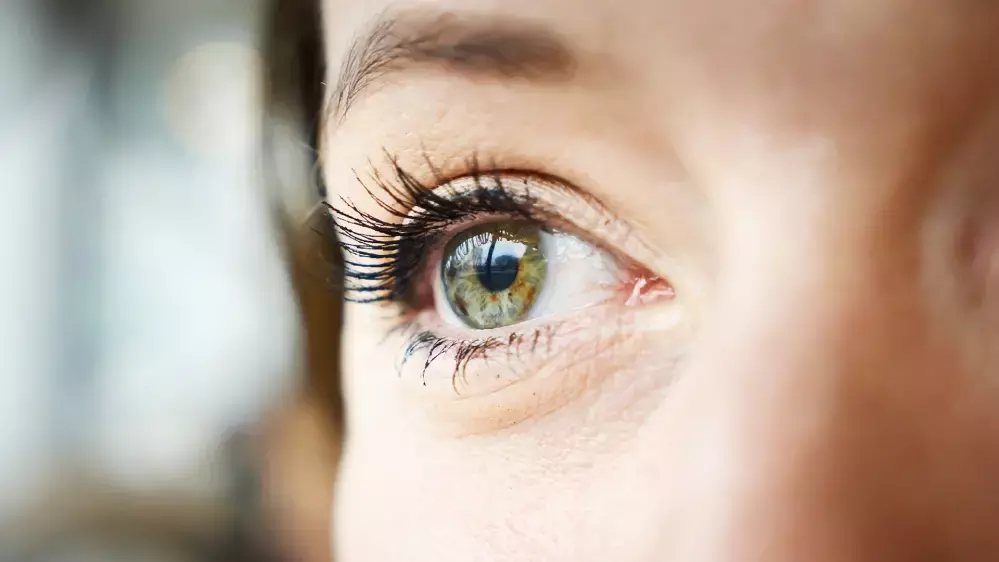- Home
- Medical news & Guidelines
- Anesthesiology
- Cardiology and CTVS
- Critical Care
- Dentistry
- Dermatology
- Diabetes and Endocrinology
- ENT
- Gastroenterology
- Medicine
- Nephrology
- Neurology
- Obstretics-Gynaecology
- Oncology
- Ophthalmology
- Orthopaedics
- Pediatrics-Neonatology
- Psychiatry
- Pulmonology
- Radiology
- Surgery
- Urology
- Laboratory Medicine
- Diet
- Nursing
- Paramedical
- Physiotherapy
- Health news
- Fact Check
- Bone Health Fact Check
- Brain Health Fact Check
- Cancer Related Fact Check
- Child Care Fact Check
- Dental and oral health fact check
- Diabetes and metabolic health fact check
- Diet and Nutrition Fact Check
- Eye and ENT Care Fact Check
- Fitness fact check
- Gut health fact check
- Heart health fact check
- Kidney health fact check
- Medical education fact check
- Men's health fact check
- Respiratory fact check
- Skin and hair care fact check
- Vaccine and Immunization fact check
- Women's health fact check
- AYUSH
- State News
- Andaman and Nicobar Islands
- Andhra Pradesh
- Arunachal Pradesh
- Assam
- Bihar
- Chandigarh
- Chattisgarh
- Dadra and Nagar Haveli
- Daman and Diu
- Delhi
- Goa
- Gujarat
- Haryana
- Himachal Pradesh
- Jammu & Kashmir
- Jharkhand
- Karnataka
- Kerala
- Ladakh
- Lakshadweep
- Madhya Pradesh
- Maharashtra
- Manipur
- Meghalaya
- Mizoram
- Nagaland
- Odisha
- Puducherry
- Punjab
- Rajasthan
- Sikkim
- Tamil Nadu
- Telangana
- Tripura
- Uttar Pradesh
- Uttrakhand
- West Bengal
- Medical Education
- Industry
Joint statement on hydroxychloroquine use with respect to retinal toxicity

USA: Four renowned medical societies have released a joint statement on the use of hydroxychloroquine with respect to retinal toxicity.
The statement is released by American College of Rheumatology (ACR), American Academy of Ophthalmology (AAO), the American Academy of Dermatology (AAD) and the Rheumatologic Dermatology Society (RDS) and published in the journal Arthritis & Rheumatology.
"Prescribing clinicians and eye care specialists share responsibility for safely prescribing hydroxychloroquine (HCQ) and screening for the potential risk of retinopathy," wrote the authors. Two relevant national societies, the ACR and the AAO have independently offered management guidelines, but this is the first joint statement to emphasize points of agreement that should be recognized by practitioners in all specialties.
To promote the need for collaborative management of hydroxychloroquine retinopathy, and combat the dearth of information on proper dosage, the four societies recruited a working group of seven rheumatologists, two ophthalmologists and two dermatologists. Members were brought into the group based on their expertise and publication record, with considerations made for gender, age and U.S. geographic diversity.
The working group consulted the literature to determine whether any new developments in their fields may require changes to the basic principles of management described in the AAO's 2016 guidelines. In addition, the committee identified which parts of those 2016 recommendations that were applicable and acceptable to the physicians most likely to prescribe hydroxychloroquine.
Key points include:
- With proper dosing of 5 mg/kg or less per day, the risk for retinal toxicity associated with hydroxychloroquine use is less than 2% for up to 10 years.
- The widespread use of more sensitive tests, such as optical coherence tomography (OCT), can now detect early retinopathy and preserve eye function in patients receiving the drug.
- Effective communication between health care providers is a key factor in the management of hydroxychloroquine. It is the responsibility of the rheumatologist, dermatologist or other non-ophthalmic clinician to prescribe the drug properly, but the responsibility of the opthalamologists or other eye care professional to screen correctly for toxicity.
- In addition, it is the responsibility of all involved to advise patients regarding the risk for retinopathy, and to work together to ensure optimal care.
- Regarding hydroxychloroquine dosing, data suggest that an average daily regimen of 5 mg/kg in actual weight, or less, provided a low risk for toxicity — less than 2% for up to a decade of use. Higher average daily amounts increase the risk for retinopathy to approximately 10% after 10 years, with the risk continuing to rise with longer duration of use.
- High daily doses of hydroxychloroquine relative to body weight, and cumulative doses, are the primary risk factors for eye toxicity. Patients with renal insufficiency may need lower doses and closer monitoring.
- For patients with a normal screening exam in a given year, the risk for retinopathy in the ensuing year is less than 5%, even after 20 years of use.
- For screening, the statement recommends a baseline retinal exam within the first few months of hydroxychloroquine use, to rule out any underlying disease that might compromise eye function or make it harder to recognize retinopathy. Meanwhile, the "mainstays" of early retinopathy detection are OCT and automated visual fields.
- Eye care providers should communicate with patients and with clinicians who prescribe HCQ.
- It is essential that patients are aware of the risks, dosage, the importance of screening, and how HCQ contributes to control of their disease. Overall, the risk of retinopathy is very low if these principles are followed.
"ACR, AAD, RDS, and AAO 2020 Joint Statement on Hydroxychloroquine Use with Respect to Retinal Toxicity," is published in the journal Arthritis & Rheumatology.
DOI: https://onlinelibrary.wiley.com/doi/10.1002/art.41683
Dr Kamal Kant Kohli-MBBS, DTCD- a chest specialist with more than 30 years of practice and a flair for writing clinical articles, Dr Kamal Kant Kohli joined Medical Dialogues as a Chief Editor of Medical News. Besides writing articles, as an editor, he proofreads and verifies all the medical content published on Medical Dialogues including those coming from journals, studies,medical conferences,guidelines etc. Email: drkohli@medicaldialogues.in. Contact no. 011-43720751


